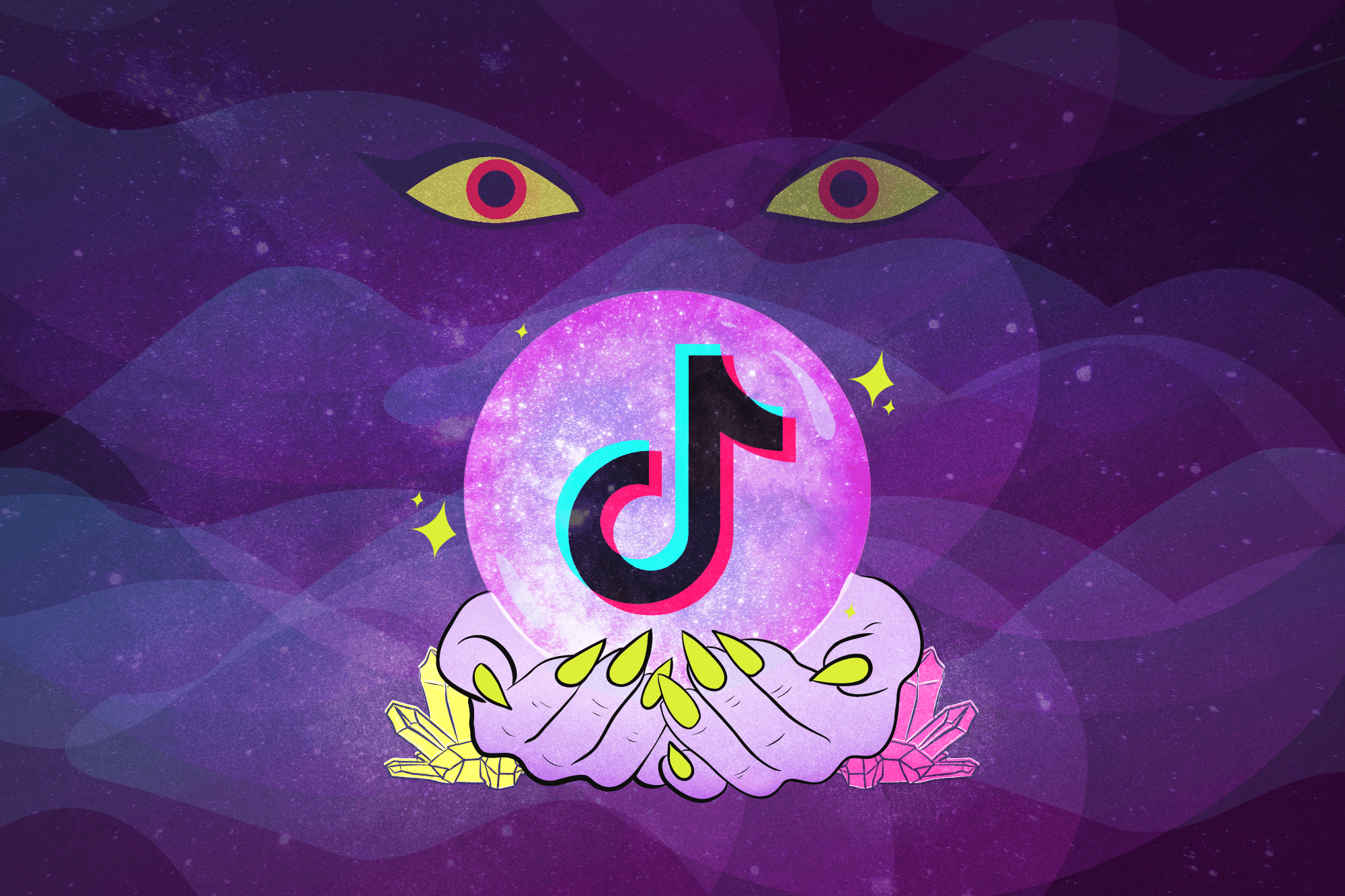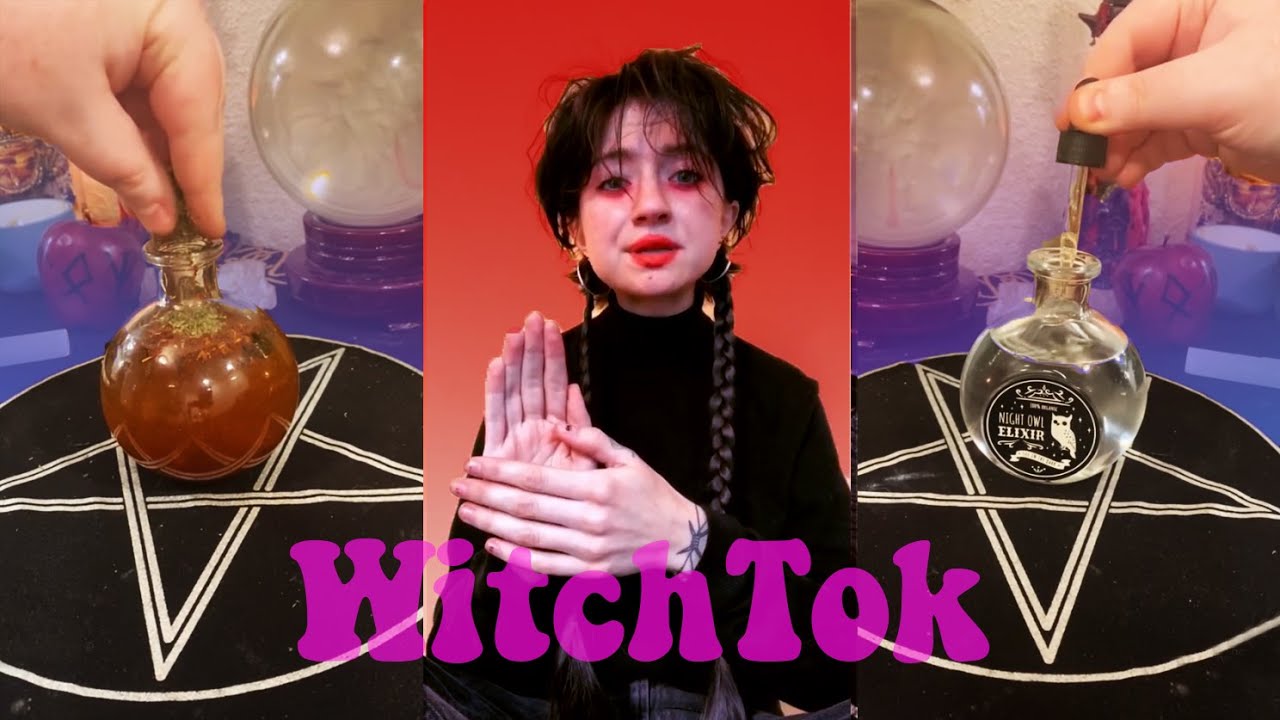What's Brewing On WitchTok?
One of these is the "WitchTok" people group. Recordings named #WitchTok have up until this point timed up a noteworthy 18.7 billion perspectives.
Author:Evelyn AdamsReviewer:Calvin PenwellJan 12, 20246.8K Shares91.3K Views

While the most-watched TikTok recordings might seem silly to any individual who abhors teens lip matching up to famous melodies, a few astounding subcultures have emerged since the stage's initiation in 2017.
One of these is the "WitchTok" people group. Recordings named #WitchTok have up until this point timed up a noteworthy 18.7 billion perspectives.
So, it is unadulterated idealism, as is WitchTok; makers of WitchToks frequently additionally make Cottagecore recordings.
However, where Cottagecore offers to expect a decent, green world that very well could be prepared and planted into reality, WitchTok hashtagsvideos daringly avoid past the limits of plausibility and guarantees a powerful method for making life more tolerable.
The overflow of enchantment on TikTok provoked my curiosity, addressing as it does another outskirt in prevalent thinking.
It has likewise grabbed the eye of the traditional press. In April 2021, for instance, the Financial Times counseled anthropologists and scholars who mixed to decipher this odd turnout of occasions.
Its creator noted with wonder that #WitchTok had outperformed #Biden by more than 2 billion perspectives and is presently driving by around 6 billion and then some.
Viable Wizardry
TikTok permits its clients to make 15-second video cuts or a line of 15-second clasps of something like 60 seconds altogether.
This configuration fits high speed, outwardly engaging substance, and this has molded the sort of enchantment found on WitchTok.
Spells utilizing candles, containers, gems, and spices make for smart and brief instructional exercises which can be promptly imitated by the watcher.
Intuitive WitchToksare especially famous, typically utilizing tarot cardsor pendulum sheets, where a precious stone is hung over a bunch of words, apparently swinging over reality when posed a basic inquiry.
By asking the watcher to partake, to "consider an inquiry you need a response for", makers are obviously gaming TikTok's calculation, keeping people watching and empowering commitment while asserting that it was otherworldly power that attracted them to a video.
Curtness is the spirit of WitchTok, where complex tarotspreads are deserted for a one or three-card message told to a crowd of people of millions out of 30 seconds.
Cutting a supernaturalimage into a candle upstages tangled and costly custom enchantment from additional formal, organized recondite frameworks, where a solitary spell can require a day or more.
What, then, are TikTok clients searching for in their mysterious clasps of 60 seconds or less?
The most widely recognized elementsof a spell appear to be love, cash, recuperating, or retribution, especially retaliation for the benefit of a friend or family member, whether violated by a school menace or harmful spouse.
Wizardry requests since life are uncalled for, and power is a lovely dream. In such a manner, WitchTok is the same as some otheroccultcustom.
Witchtok Trackers
The occult subculture is a disputable one, and the witches of TikTok are an especially strong magnet for shock and joke.
They have experienced harsh criticism from three fundamental sorts of adversaries who show up thusly as exaggerations in WitchTok recordings.
The first of these is a gatecrasher who I'll call "the furious Christian".
When emulated in a WitchTok, the irate Christian bursts with enraged ire, coming down on the disasters of sorcery, till they are hushed with a cheeky counter or danger of a hex.
The irate Christian has confidence in wizardry, in Satan, and in the occult.
They just think you'll take a chance with your spirit in the event that you draw in with it. The Christians I grew up with are cut from definitively this material.
More uncommon than the irate Christian yet involving a comparably wretched job is "the smarmy doubter", the unbeliever who cares very little about any sort of confidence.
WitchTok recordings frequently sensationalize dream discussions with them, envisioning unfavorable counters:
“„Don't put stock in curses? Sure! Simply provide me with a lock of your hair then, at that point, … no? somehow or another the smarmy doubter is more terrible than the furious Christian, declining guide clear toward being "profound" by any means.
I'm apprehensive this is most likely the classification into which I would be set.
Intriguingly, notwithstanding, a third rival has emerged from inside the occult local area itself. I'm calling "the educated performer", a professional who approaches the occult in a serious way as a mind-boggling and academic pursuit, savoring the experience of the hypothesis, the intricacy of ceremonies, and the more extensive philosophical ramifications of their convictions.
Not exactly so TikTok-accommodating, they will more often than not show up when the patterns of WitchTok digress from the rationale of a specific occult framework, stepping in to address the new "child witches" and communicating irritation with discussions that will sound comfortable even to those with no interest in the occult.
Is it a social assignment to wear a stink eye pendant?
Does calling for discipline in enchanted custom compared to a type of extremism?
A few learned performers are endeavoring to overcome any issues. Gen-Z occultist Georgina Rose or "Da'at Darling" - who has gathered the discussion between the demonolater mage to which I am going to tune in - puts out a productive exhibit of content going from early on YouTube talks to clever tweets and TikToks.
What Occultist Means?
Occultist means mysterious hypothesis or practice: confidence in or investigation of the activity or impact of extraordinary or supernormal powers.
Irritated about the “rise of anti-intellectualism in Generation-Z heavy online occult spaces”, she answered, suitably, with an effective TikTok hashtag: #DefendOccultBooks. Maybe not an out and out "adversary" of Witchtok, all things considered - as "Da'at Darling" puts it, “it is important to reach this platform, so new practitioners can have good information on the occult” - the learned performer is still, best case scenario, open-minded toward the patterns of TikTok otherworldliness.
Here, then, at that point, is another venue of thoughts where creative innovation has not controlled antiquated enchanted rehearses but rather has progressed them, bringing about new types of confidence and split.
Assuming the unbelieving peruser is requesting themselves how another age from occultismhas emerged in an apparently illuminated current age when doubtlessly the tech-proficient youthful know not to get back to antiquated notion, they need look no farther than an equal series of occasions in Shakespeare's England.
This was when advancements in innovation and culture served to rehash and stimulate antiquated occult convictions.

Witchtok 🔮 TikTok Compilation
Note: This is only for entertainment purposes, So do not try it. It can lead to the worst. Or it could be a conspiracy trap for you. So BEWARE!
The Occult Renaissance
In medieval England, getting your hands on a book of magic was an interesting business.
Before the development of the print machine, written by hand texts were passed around in original copy structure between those fortunate enough to have been shown how to peruse.
Exorbitant and tedious, the creation of a book was essentially not worth the work except if the items really made a difference.
Disregarding this, from the mid-thirteenth century onwards, a progression of compositions that managed occult information were converted into Latin and different European dialects, slipping clandestinely between the individual libraries of affluent men.
In the event that the Renaissance can be described all the more broadly as a time of interpretationof old-style astuteness, so too was it a period when occult "shrewdness" started to circle more generally than previously.
Books of sorcery, or "grimoires", a word which gets from the French grammaire, guaranteed, similar to standard school syntaxes, to show the peruser the fundamentals of another dialect, however, this was the language of spell-production and demon raising.
Grimoires were oftentimes ascribed to renowned men of obscure learning.
Assuming that had composed such a text, couldn't the shrewd Christian peruser similarly practice the occult without jeopardizing his spirit?
Conclusion
Talk of the grimoires and their horrid customs in witchtoks would circle broadly all through the archaic period while the genuine, frequently relatively tasteless items, stayed dark.

Evelyn Adams
Author
Evelyn Adams is a dedicated writer at Kansas Press, with a passion for exploring the mystical and uncovering hidden meanings.
Evelyn brings a wealth of knowledge and expertise to her insightful articles. Her work reflects a commitment to providing accurate information, thoughtful analyses, and engaging narratives that empower readers to delve into the mysteries of the universe.
Through her contributions, Evelyn aims to inspire curiosity, spark imagination, and foster a deeper understanding of the supernatural world.

Calvin Penwell
Reviewer
Since diving into numerology in 1997, my path has been marked by extraordinary encounters and insights. A pivotal moment was uncovering a forgotten numerological manuscript in a tucked-away Italian library, which deepened my connection to the ancient wisdom of numbers. Another transformative experience was a meditation retreat in Nepal's tranquil mountains, where I honed my intuition and the art of interpreting numerical vibrations.
These adventures have not only enriched my numerological practice but also my ability to guide others towards understanding their destiny and life's purpose. My approach is deeply personal, rooted in a blend of historical knowledge and intuitive insight, aimed at helping individuals find their alignment with the universe's abundant energies. My mission is simple: to share the power of numerology in illuminating paths to abundance and fulfillment.
Latest Articles
Popular Articles

